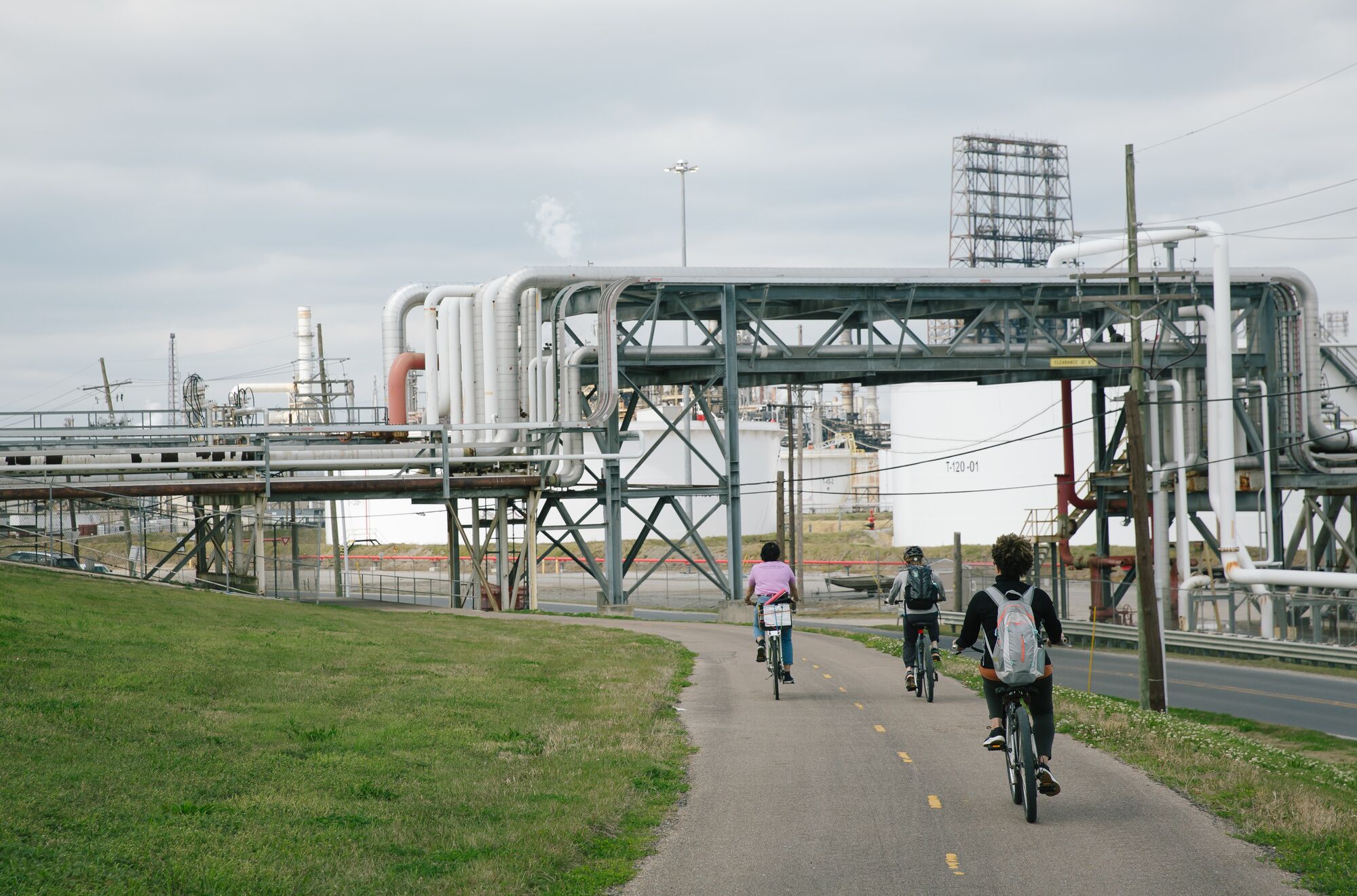Five Ways the A. Donald McEachin Environmental Justice for All Act Will Empower Frontline Communities and Help Remedy Decades of Environmental Injustices
The landmark A. Donald McEachin Environmental Justice for All Act represents the federal government’s most significant effort to address environmental injustices and hold polluting industries accountable.
Everyone has the right to breathe clean air, drink clean water, and live without fear of toxic chemical contamination. Unfortunately, that’s not the reality for millions of people living with the disproportionately high impacts of dangerous pollution. From the ports of Long Beach, California and Newark, New Jersey to the communities of Cancer Alley in Louisiana and Indigenous lands across the country, polluting industries continue to poison the air, water, and land of communities of color and those of low income while facing little, if any, consequences.
Community leaders have gone toe-to-toe with these industries for decades to hold them accountable and much of their work has culminated in an inclusive, ambitious, and community-driven piece of legislation. Recently, Reps. Raúl M. Grijalva (D-AZ) and Barbara Lee (D-CA) as well as Senators Cory Booker (D-NJ) and Tammy Duckworth (D-IL) introduced the A. Donald McEachin Environmental Justice for All Act, a landmark environmental justice bill that represents the federal government’s most significant effort to address environmental injustices and hold polluting industries accountable. The bill is appropriately named in memory of Representative Donald McEachin (D-VA), the original sponsor of the bill and an incredible environmental justice advocate, who passed away in late 2022. It is a testament to the late representative’s strong legacy to address environmental racism.
So, what’s in the bill and how will it help remedy decades of environmental racism while empowering frontline communities? Here are five fast facts about the legislation:
- It’s created by and for the people. Through a unique legislative process soliciting feedback and recommendations from those most impacted by pollution, lawmakers crafted the bill in true inclusive partnership. They recognized that any legislation must be grounded in the needs of the communities living with the consequences of pollution. Instead of being a product of top-level political haggling, the bill reflects the voices and lived experiences of the communities who are most impacted by environmental injustices.
- It reflects and addresses how communities experience toxic pollution by requiring cumulative impacts analysis. Our national system of pollution control is fundamentally unjust in that it regulates pollutants and pollution sources one-by-one. It often neglects the fact that frontline communities face the historic, constant, and interactive addition of many pollutants, multiple sources, and various socio-economic factors all at once. True and equitable regulation of pollution is done by addressing the cumulative nature of the impacts pollution causes and by instituting thresholds to stop further harm. The bill mandates meaningful cumulative impacts analysis and, if a project poses a significant risk of harm or death, the bill allows federal agencies to deny permits.
- It treats environmental justice as a civil rights issue. Historically, people of color and low-income communities have borne more environmental burdens than more affluent or white communities. As we build new infrastructure, it’s imperative that we address disproportionate impacts. The bill mandates agencies to study and address disproportionate burdens—whether intentional or not—on communities of color and low income using existing legal frameworks that give communities a right to weigh in on the projects built in their neighborhoods. The bill would expand agencies’ ability to address the decades old problem of racial and income-based inequalities in environmental health degradation.
- It reinvests in environmental justice communities. Many environmental justice communities may rely on the very industries poisoning their communities for jobs and local economic growth. The bill establishes the Federal Energy Transition Economic Development Assistance Fund, paid for by new fees on fossil fuel industries. The Fund will invest in environmental justice communities so that communities who depend on polluters for employment can transition to cleaner and more economically sound options. Communities should never have to choose between good paying jobs and a healthy environment.
- It invests in science. The bill would provide grant funding to support the research and development of programs and projects aimed at addressing long-term environmental and public health issues in environmental justice communities. By having a better understanding of the long- and short-term impacts of polluting industries, we can continue crafting policies that build on the Environmental Justice for All Act and ensure that all communities have the clean air, water, and land they deserve.
Established in 1989, Earthjustice's Policy & Legislation team works with champions in Congress to craft legislation that supports and extends our legal gains.
Geoffrey Nolan
Public Affairs and Communications Officer, Earthjustice
gnolan@earthjustice.org
